Communities bear the brunt of elephant population
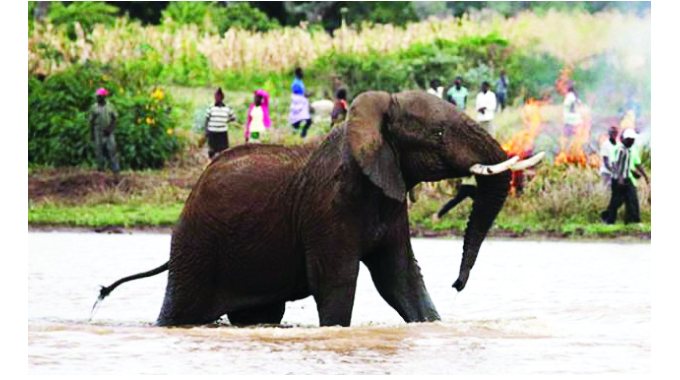
Leonard Ncube in Hwange
INVOLVEMENT of communities that are affected by human-wildlife conflict in decision making has been taking centre stage during deliberations at the ongoing African Elephants conference in Hwange.
Organisers saw it fit to host the four-day event in Hwange National Park, the home of more than 45 000 elephants, to rubberstamp the need for sustainable elephant conservation strategies in the wake of overpopulation of jumbos in the giant park.
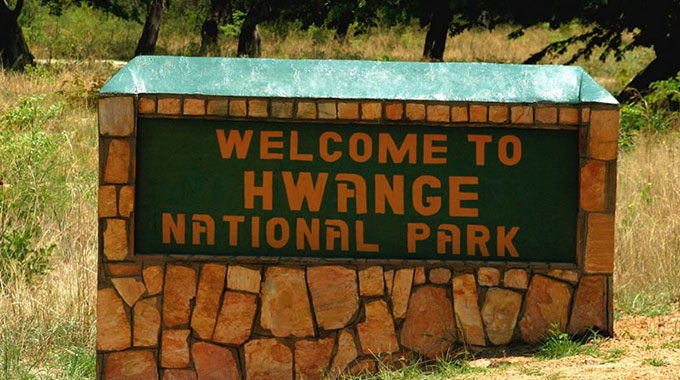
Hwange National Park
There is an overpopulation in elephant range states in Africa.
Zimbabwe, with over 90 000 jumbos against a carrying capacity of 45 000, and Botswana, which has between 130 000 and 160 000 elephants, account for two-thirds of the world’s African jumbos.
Because of overpopulation, human-wildlife conflict has been prevalent in communities that are adjacent to game parks as animals migrate to seek fresh habitant and water.
Communities have lost crops, livestock and loved ones due to attacks by the wild animals.
Two people were recently killed by elephants in Victoria Falls in a space of a week while Chief Dingane-Nelukoba of Dete on the edge of Hwange National Park also said at some point he lost two of his subjects in a month to the jumbos.
His area has two known cases of survivors of attack by elephants and lions.
Human-wildlife conflict is common in most African countries except for South Africa whose wildlife model involves fencing off game parks.
Botswana is also erecting an electric fence separating communities and animal zones.
Victoria Falls residents recently called upon Zimbabwe Parks and Wildlife Management Authority (ZimParks) to erect a fence separating human settlements from the game parks.
Zimbabwe is hosting the inaugural Africa Elephant Conference where Range States are pushing an agenda towards a common voice against a decision by the Convention on International Trade in Endangered Species of fauna and flora (CITES) to put elephant species in Appendix 1 thereby totally banning trade in ivory.
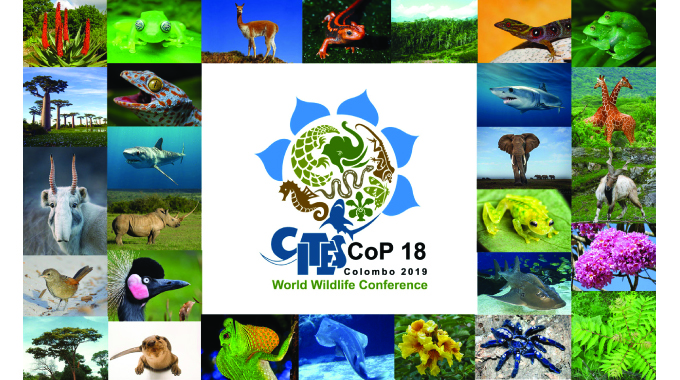
Convention on International Trade in Endangered Species of fauna and flora (CITES)
Most countries stopped trading in elephants and their products in 1989 when the ban was effected and now have a headache of an ever increasing ivory stockpile that they can’t sell.
Zimbabwe is sitting on about US$600 million worth of ivory and these started accumulating in the 1980s, according to ZimParks director general Dr Fulton Mangwanya.
He said 26 percent of the ivory was from natural mortality of elephants while 30 percent was from problem animals and the remainder recovered from poachers.
Africa has Savanna and Forest elephant species and their population is increasing although the global population is said to be declining.
Zimbabwe is home to about 90 000 jumbos against a carrying capacity of 45 000, with Hwange National Park alone having more than 45 000 against its carrying capacity of 15 000.
The meeting seeks to drive a common voice and avoid unnecessary discord going to the Conference of Parties 19 (COP19) to be held in Panama in November 2022.
Participants noted the absence of voices of affected communities in the debate.
Dr Mangwanya said it was disheartening that in the eyes of CITES, non-governmental organisations are allowed to attend the international COP meetings yet communities that are affected by human-wildlife conflict are barred.
“Africa should learn to support each other than to attack each other.
Elephants should be a uniting force and we need collaboration to make science-based decisions because we can’t say animals are more important than human beings. People should not just open their mouths and talk when they don’t know what is happening,” said Dr Mangwanya.
He said 100 percent of proceeds from Campfire programmes are channelled to community development in the affected areas.
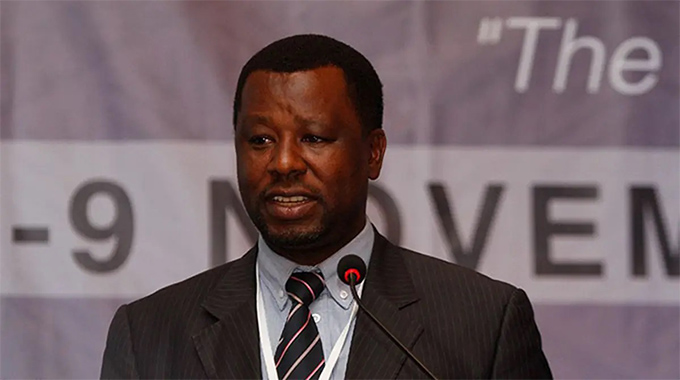
Environment, Climate, Tourism and Hospitality Industry Permanent Secretary Mr Munesu Munodawafa
Environment, Climate, Tourism and Hospitality Industry Permanent Secretary Mr Munesu Munodawafa said a lot of development was taking place in communities using funds generated from wildlife conservation among others, and this could only be articulated to the world if concerned communities speak.
“Communities should be able to speak for themselves in this regard.
Let’s go there and speak.
We should be bold enough to propose alternatives,” he said while urging delegates to come up with strong recommendations.
Delegates concurred on the need to support the mandate of community involvement both locally and internationally and push for participation of communities at COP meetings.
Traditional leaders were invited to share experiences from contact with animals in their communities and Chief Dingani Nelukoba said traditional leaders were in support of the call to lift ban on trade in ivory.
He said there should be deliberate initiatives to engage communities on the issue.
“Government should engage us and communities.
If possible, we should also go and append our signatures in black and white,” he said.
Participants said there is a need for alternative plans in case the ongoing engagement fails to convince CITES, and Chief Dingane Nelukoba said noise including voices of communities will shape the way forward.
One of the participants Mr Innocent Ndudzo said the missing link in sustainable elephant conservation has been the voices of communities who have first-hand experiences about conflict.
Countries incur huge costs in wildlife management as well as keeping ivory stockpiles.

Department of Wildlife and National Parks Dr Kabelo Senyatso
In Botswana elephants are all over the place with some incidents of jumbos straying into the capital city Gaborone being recorded two years ago, according to director of Department of Wildlife and National Parks Dr Kabelo Senyatso in Botswana.
The neighbouring country is also sitting on huge stockpiles of ivory that it cannot sell because of the CITES embargo.
“The problem of elephants is not only real in Botswana but in the whole of KAZA.
We are having a very serious challenge that apart from mortalities, elephants are forcing people to change lifestyles. We are seeing negative impact of conflict especially as communities face water challenges because of elephants that damage water infrastructure. So as Botswana we want to allow for hunting and trade in ivory,” said Dr Senyatso. -@ncubeleon

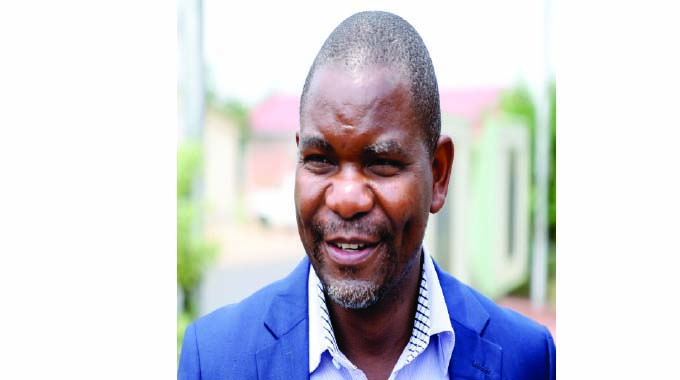
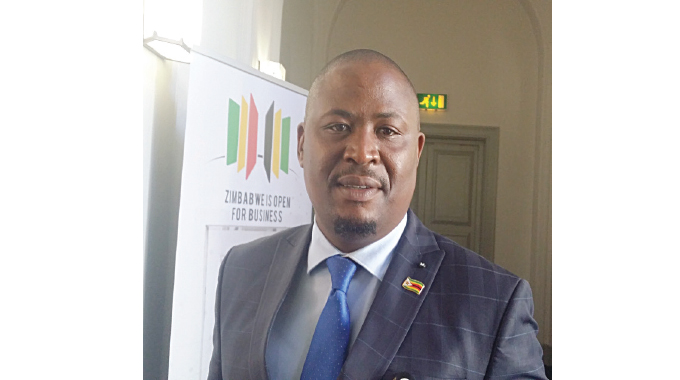






Comments